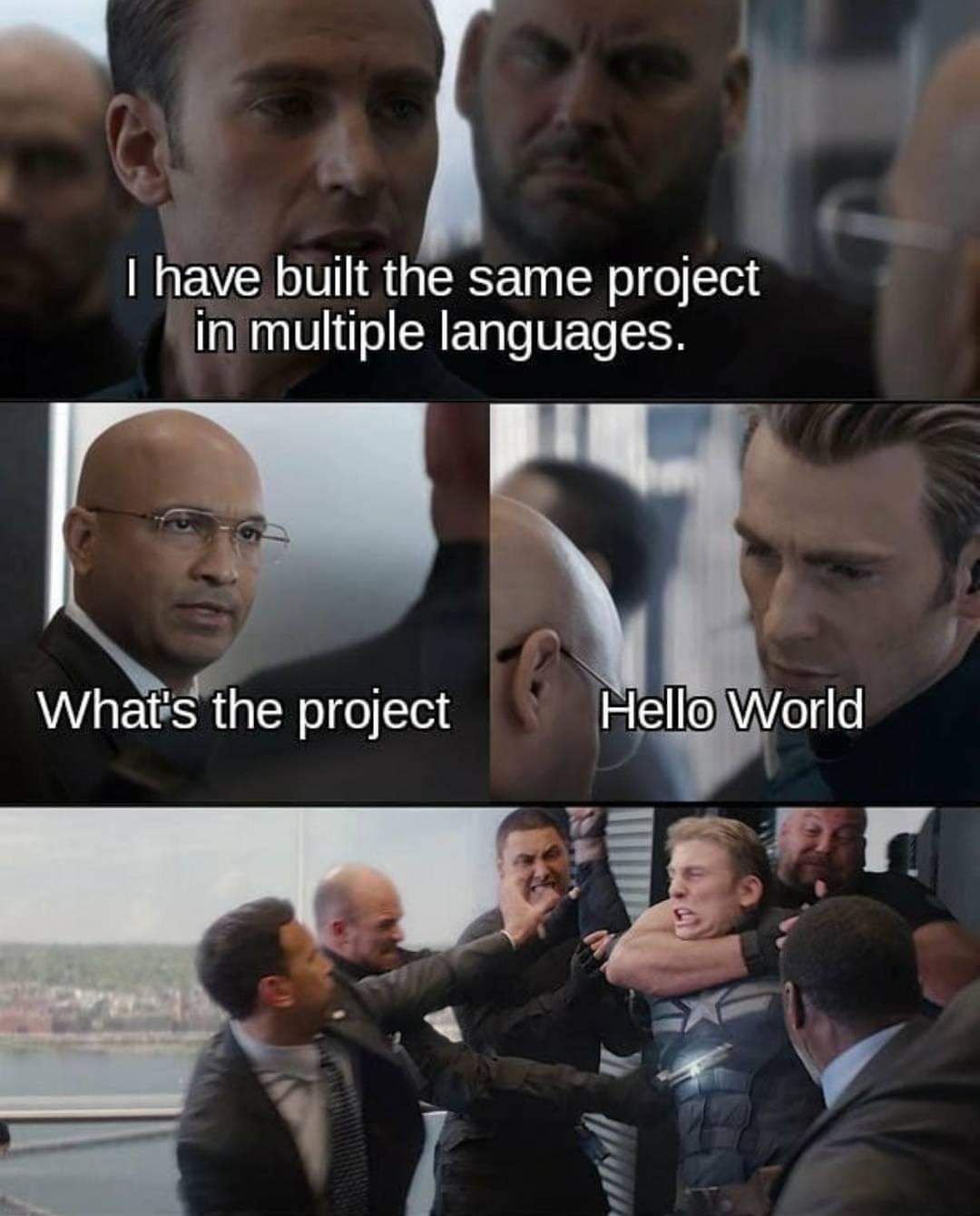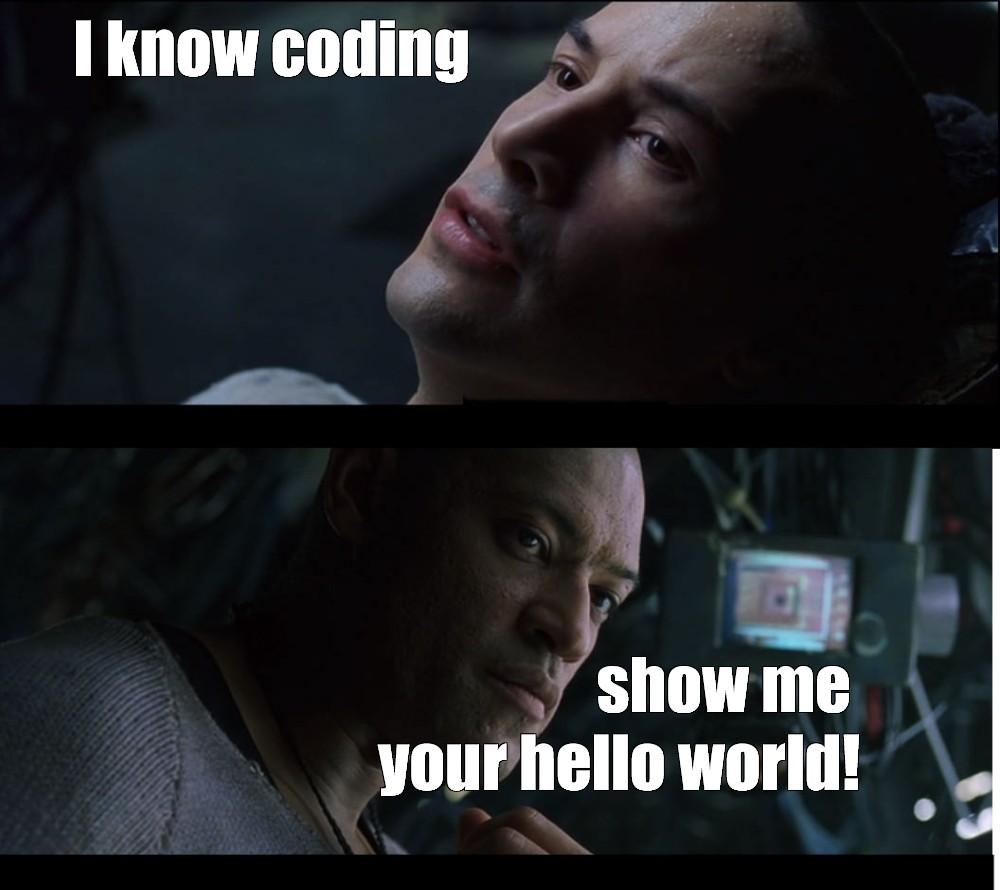helloworld
Hello World in Multiple Languages Extravaganza
Hello world project extravaganza
Synopsis
This repository contains a collection of “Hello World” programs written in multiple programming languages. This is a fun and educational project that showcases how to print “Hello World” in different programming languages. The goal is to have a “Hello World” program in every programming language. This project is inspired by the GitHub Hello World project. Check out the project website at https://silviotorre.github.io/helloworld/ for more information.

check out the code
To get started, clone this repository to your local machine:
git clone https://github.com/silviotorre/helloworld.git
Getting Started
In general, to run the “Hello World” program in a specific programming language you must act like in the example below. Example: to run the “Hello World” program in Python, navigate to the project directory and run the program with the following command:
python hello-world.py
tasks
- create a hello world project
- Bash hello world
- C hello world
- C# hello world
- Cmd line hello world
- Cobol hello world
- F# hello world
- Fortran hello world
- Go hello world
- Groovy hello world
- Java hello world
- Javascript hello world
- Json hello world
- Kotlin hello world
- Kusto hello world
- Matlab hello world
- Node.js hello world
- Perl hello world
- Powershell hello world
- Python hello world
- Q# hello world
- R hello world
- Ruby hello world
- Rust hello world
- Scala hello world
- Sql hello world
- T-sql hello world
- U-sql hello world
- Visual Basic hello world
- Vb.net hello world
- Xml hello world
- Yaml hello world
Extra Credit
- Add a new programming languages
- Add a project banner
- Add a project logo
- Add a project translation
- Add a project website
- Add a project wiki
- Add shields to README.md
- Github actions hello world
- Google dorks hello world
- Office macro hello world
- Uml hello world
- Unit test hello world
Contributing
The first documented use of “Hello, World!” as a computer programming message dates back to 1972. It was introduced by Dennis Ritchie, one of the pioneers of the C programming language, while he was working on the development of the Unix operating system at Bell Labs. The initial version of “Hello, World!” was used in a tutorial for the B programming language, which served as the precursor to C.
“Hello, World!” as a standard introductory example can be attributed to the growth and influence of the C programming language. As C became popular in the 1970s and 1980s, it is simple enough for beginners to understand and illustrates the basic syntax of a programming language. In addition, it is a useful sanity test to make sure that a programming language is correctly installed on a computer.
This is the original code written in C by Dennis Ritchie:
#include <stdio.h>
int main(void){
printf("hello, world\n");
return 0;
}
So here is the challenge:

If you wont to contribute with your own “Hello World” programs to this repository simply create a new directory with the name of the programming language and add a file named hello-world with your implementation. Don’t forget to update the README file to include your contribution!
Contributors
- Silvio Torre (silviotorre) - creator, maintainer and contributor
License
- This project is licensed under the MIT License - see the MIT file for details
References
Enjoy and happy coding!